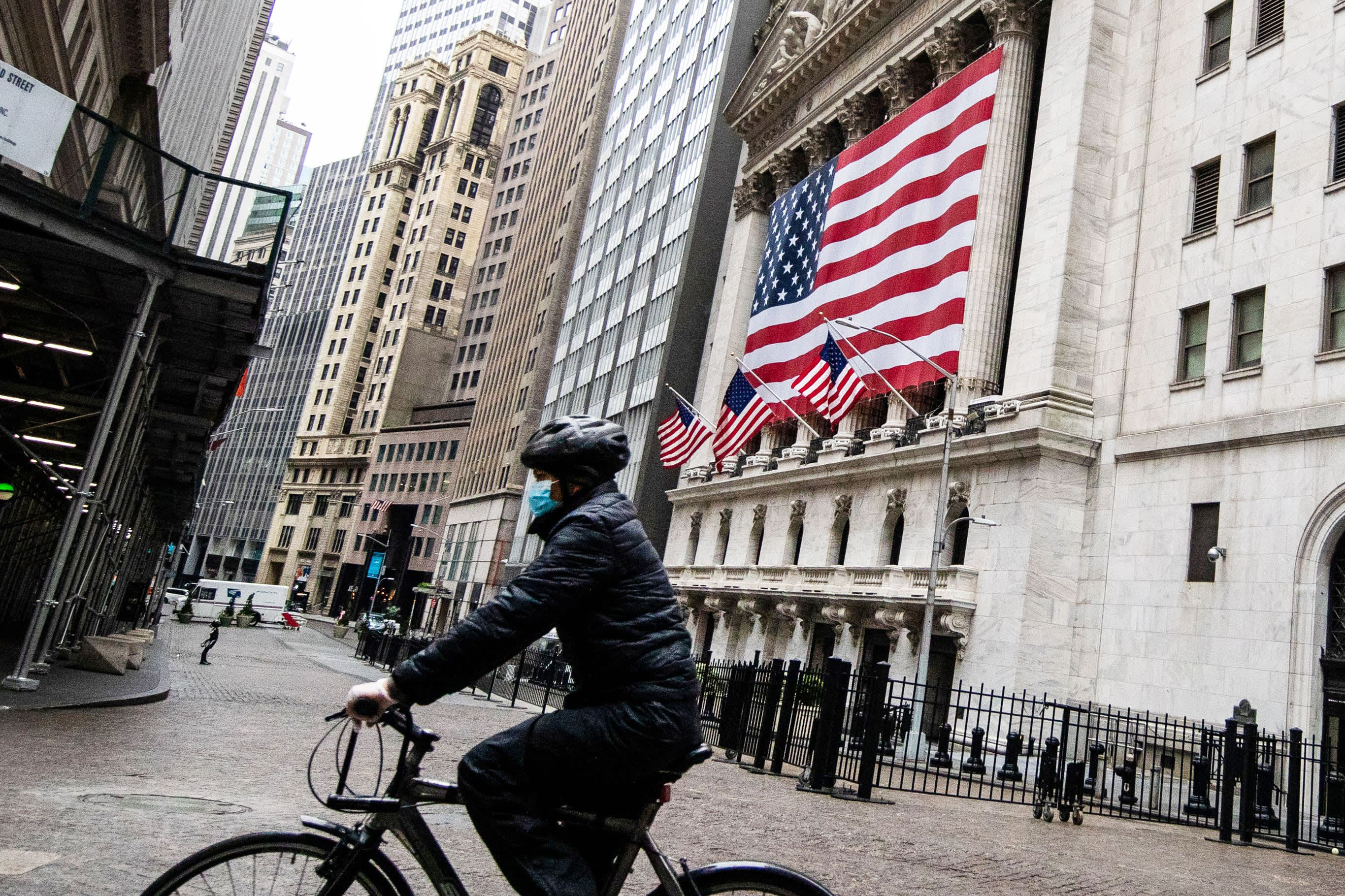The New York Stock Exchange (NYSE) is seen in the financial district of lower Manhattan during the outbreak of the coronavirus disease (COVID-19) in New York City, April 26, 2020.
Jeena Moon | Reuters
As encouraging as the market comeback this month has been, Wall Street has little faith in it.
A leveling out of coronavirus hospitalizations, rising hopes for a treatment and a partial reopening of the economy sparked a steep rebound this month, with the S&P 500 popping more than 13%, on track for its best month since 1987 and its third best month ever since World War II.
However, a lack of an all-clear on the pandemic front, coupled with worrisome technical and sentiment indicators, lead many Wall Street pros to believe the market is getting way ahead of itself.
“Beware of the oddity in this bear rally,” Andrew Lapthorne, global head of quantitative research at Societe Generale, said in a note Thursday. “Given the overall negative undertone from the economic challenges ahead, the dramatic reversal of global markets after the pandemic lows is more puzzling.”
The economic fallout is still unfolding on a daily basis. Stocks dropped on Thursday after the latest data showed more than 30 million Americans filed for unemployment over the last six weeks. Meanwhile, the U.S. economy shrank 4.8% in the first quarter, marking the biggest decline since the worst of the financial crisis.
Based on an exhaustive analysis of bear markets in the past 150 years, Societe Generale expects the S&P 500 to end this year at 2,715, a 7% decline from here. The equity benchmark has bounced more than 30% off its March 23 low to 2,939 at Wednesday’s close.
“We do believe as we get closer to the opening of the economy, the various areas of credit – such as the US Treasury Yield Curve and Bank Lending – suggest the market may be getting ahead of itself as hope may be offset by reality,” Tony Dwyer, chief market strategist at Canaccord Genuity, said in a note. Dwyer has suspended his S&P 500 year-end target due to the unprecedented volatility.
‘Odds of another deep decline are very, very high’
From a technical standpoint, the market seems poised for a pullback again, they argue. The S&P 500 has reached a key 61.8% retracement level, according to Fibonacci analysis, a gauge technical analysts use to predict inflection points.
“As we all know, no market moves in a straight line,” Matthew Maley, chief market strategist at Miller Tabak, said in a note Thursday. “The damage that was done in the first (37%) decline…and the recession that is upon us…could cause another round of selling before too long … History tells us that the odds of another deep decline are very, very high.”
Also worth noting is that investor darling Amazon experienced an “outside-down” day on Tuesday, where the high for the day is higher than the previous day’s high and the low of the day is below the previous day’s low. The phenomenon often signals an exhaustion of a rally.
For one, DoubleLine CEO Jeffrey Gundlach believes a retest of the low is “very plausible” as investors are too optimistic about the economic recovery from the pandemic. The so-called bond king revealed Monday he just initiated a short position against the stock market.
Sentiment turning sour
Under the surface, investor sentiment has in fact turned bearish on multiple fronts, Maneesh Deshpande, head of equity derivatives strategy at Barclays, pointed out.
Institutional positioning represents the most pessimistic in nearly four years, as measured in the net open interest in S&P 500 futures, Deshpande said, adding it’s mainly driven by asset managers decreasing equity exposure. Meanwhile, AAII Bull-Bear indicator, a proxy for retail sentiment, is at lowest levels since the coronavirus crisis began, he added.
Deshpande also cited an increase in short interest in exchange-traded funds recently and a more bearish positioning in options markets, which indicates increased hedging demand.
“The rebound has been legitimate but is also fragile,” Lori Calvasina, head of U.S. equity strategy, said in a note Thursday. “We expect US equities to remain choppy in the coming months.”
— CNBC’s Michael Bloom contributed to this report.
Subscribe to CNBC PRO for exclusive insights and analysis, and live business day programming from around the world.
